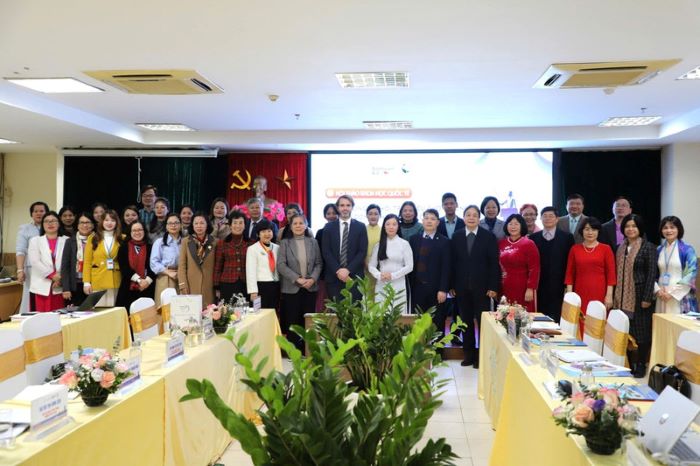Women’s participation in improvement of water supply and environment sanitation for the cause of national growth and poverty alleviation
Water and sanitation are two basic elements of environment. In terms of water supply and environment sanitation, women play an important role.
Women are the persons who reserve, manage and conserve sources of water, use and maintain their households’ hygienic facilities and protect surrounding environment. Therefore, women’s participation has become a fundamental guideline and a compulsory requirement for projects and programs concerning water supply and environment sanitation.
In parallel with the economic growth, environment in urban areas, industrial zones and a number of rural areas has been polluted more and more seriously. Shortage of clean water, poor sanitation and frequent diseases have left profound impacts on the socio- economic development of people including women and children.
Clean water and environment sanitation make up a condition for not only improving people’s health and living standard, contributing to poverty alleviation but also making a contribution to the country’s economic growth and appearance. Women’s active participation will be a significant contribution to the implementation of the National Strategy on Water Supply and Environment Sanitation in Rural Areas with its target of 85 percent of rural habitants getting access to clean water and around 70 percent of households using hygienic latrines.
Together with people all over the country participating in improvement of water supply and environment sanitation for the cause of the national economic growth and poverty alleviation, and in response to the National Week on clean water and environment sanitation from April 29th – May 6th, 2004 and the World Environment Day June 5th, 2004, VWUs at all levels focus on the following tasks:
1. Strengthening the IEC work on the benefits of clean water and sanitation to people’s health and living condition targeted at all the Women’s Union members, specifically those in remote, deep, mountainous, islandish and bordering areas in order to raise their knowledge and help them to lead a more civilized way of living.
2. Women’s Unions at all levels sign contracts with The Center for Rural Water and Environment sanitation, Provincial Departments of Science, Technology and Environment, and Urban Environment State owned Enterprises to organize training for Women’s union staff at grassroots level and IEC workers in objectives, contents and solutions for environment protection and to map out action plans on the basis of coordinating resources to solve the local pressingissues.
3. Actively and effectively getting involved in the Month of Environment Protection, starting from the National Week on clean water and environment sanitation (April 29th – May 6th) and finishing on the World Environment Day (June 5th), and maintaining those activities until the World Environment Cleaning Campaign in September 2004, thus creating a frequent movement of environment protection and a way of living, a cultural trait, and a good virtue of Vietnamese women. (For further details, see the article on Women’s Review (in Vietnamese), topic “Women’s action for clean water and environment protection”)
4. Exploring resources to build up models run by communities and women such as Green - Clean - Beautiful Village, improved cooking fire, economic and effective utilization of energy, construction and usage of toilets, self-managed waste picking groups and so on, thus creating more and more models of environment protection based on the community’s strength.
5. Effectively implementing water supply and sanitation projects and programs funded by international organizations and considering them as the models for replicating and multiplying VWU’s activities.
Withachievements in the cause of poverty alleviation and a pool of staff equipped with basic knowledge and skills on communication and mobilization for water and environment protection, VWUs at all levels should strengthen their coordination with concerned agencieswith a view to successfully implementing the national program and target of clean water and environment sanitation in rural areas as well as local environment protection.






